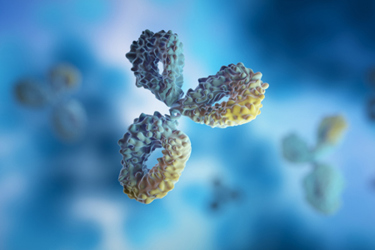Discovery And Humanization Of High Affinity Therapeutic Antibodies Against Transmembrane Proteins
By Vydehi Kanneganti, Nicole Polewaczyk, Roger Wong, and Brian A. Zabel

Therapeutic antibodies targeting type 1 transmembrane proteins (T1P) have emerged as some of the most successful biologic drugs to date. The monoclonal antibody OKT3, which targets the T1P CD3 expressed on T cells, was the first approved antibody therapeutic in 1986 and was used to prevent graft rejection. Blinatumomab, a bispecific T cell engager (BITE) that binds both CD3 and CD19, was approved in 2014 for leukemia treatment. That same year, nivolumab and pembrolizumab became the first immune checkpoint inhibitor monoclonal antibodies to target the T1P PD-1, revolutionizing cancer therapy. Advancing the next generation of therapeutic monoclonal antibodies targeting transmembrane proteins requires a reliable and efficient discovery and humanization process.
Here, we present a hybridoma-based antibody discovery and humanization strategy for a T1P target, utilizing Penta Mice immunization to generate monoclonal antibodies with picomolar binding potency, high affinity, and cross-reactivity across human, pig, and cynomolgus monkey (preclinical species).
Get unlimited access to:
Enter your credentials below to log in. Not yet a member of Drug Discovery Online? Subscribe today.
